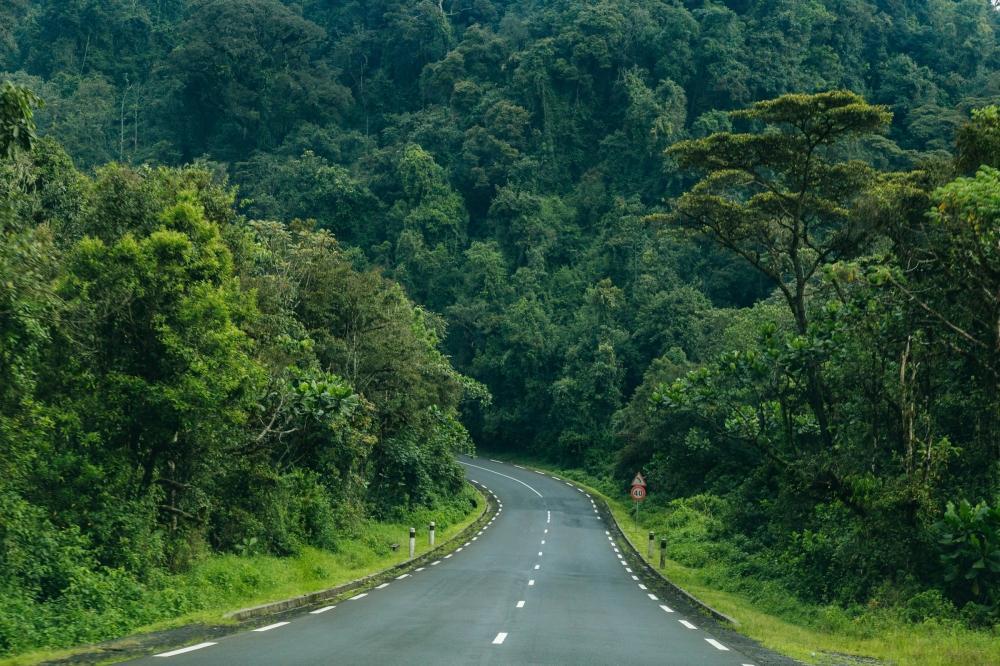Africa-Press – Rwanda. Rwanda is set to begin restoring degraded ecosystems and enhancing climate resilience in the Nyungwe-Ruhango corridor by August, following the approval of a $9 million (about Rwf12.9 billion) grant from the Global Environment Facility (GEF) on July 3, according to Rwanda Environment Management Authority (REMA).
The Ecosystem-Based Restoration Approach for the Corridor Project will focus on integrated landscape restoration and climate-smart land management practices across Nyamagabe, Nyanza, and Ruhango districts.
It will restore 2,162 hectares of forests and wetlands, promote sustainable farming on 8,931 hectares, and support income-generating activities to ease pressure on ecosystems. The project is expected to directly benefit more than 289,000 people in the targeted districts.
“After realising the benefits of the Green Amayaga Project, we requested more funding to replicate the solutions,” said Juliet Kabera, the Director General of REMA.
The Green Amayaga Project has already achieved significant results by restoring degraded landscapes in Southern Province through agroforestry, the planting of new forests, the protection of the Kibirizi-Muyira natural forest, and the implementation of livelihood-enhancing initiatives for local communities.
“We are deeply grateful to the Global Environment Facility for this new support,” said Kabera.
“This project allows us to build on the momentum created by the Green Amayaga Project and expand our efforts to restore ecosystems and protect biodiversity. Restoring degraded ecosystems is not just about protecting nature. It is about securing livelihoods, building resilience to climate change, and creating a better, more sustainable future for all.”
“We also appreciate the World Bank for the technical support provided throughout the development of this project, which has been critical in shaping its ambition and design.”
2,200 jobs
The project is also projected to create over 2,200 jobs through green initiatives such as fruit tree planting, non-timber forest product value chains, and support for small businesses. The private sector will be engaged to boost investment in climate-smart land use.
Communities will benefit from restored ecosystems, improved agricultural productivity, and sustainable livelihoods in areas prone to climate shocks.
Part of GEF-8’s Ecosystem Restoration Integrated Program (ERIP), the project is one of 20 globally. ERIP supports large-scale land restoration, private sector engagement, and knowledge exchange among developing countries. Conservation International is the lead agency.
“This project reflects the strong partnership between the World Bank and the Government of Rwanda in building climate resilience and driving inclusive green growth,” said Sahr Kpundeh, the World Bank Country Manager for Rwanda.
“It aligns with our Country Partnership Framework and global priorities on climate adaptation, biodiversity conservation, and empowering local communities to lead sustainable change,” he added.
“This is a timely intervention that combines ecological restoration with community resilience,” said Tuuli Bernardini, the Senior Environmental Specialist at the World Bank.
“By centering the role of women, youth, and local enterprises in landscape management, the project supports inclusive development and paves the way for scalable nature-based solutions.”
The project, led by REMA, will use a landscape approach to tackle land degradation, food insecurity, and climate risks such as floods and landslides. Key actions include restoring forests, wetlands, and riverbanks, and promoting agroforestry. It is part of wider World Bank-backed efforts along the Congo-Nile divide, alongside other resilience and agricultural transformation projects.
For More News And Analysis About Rwanda Follow Africa-Press






